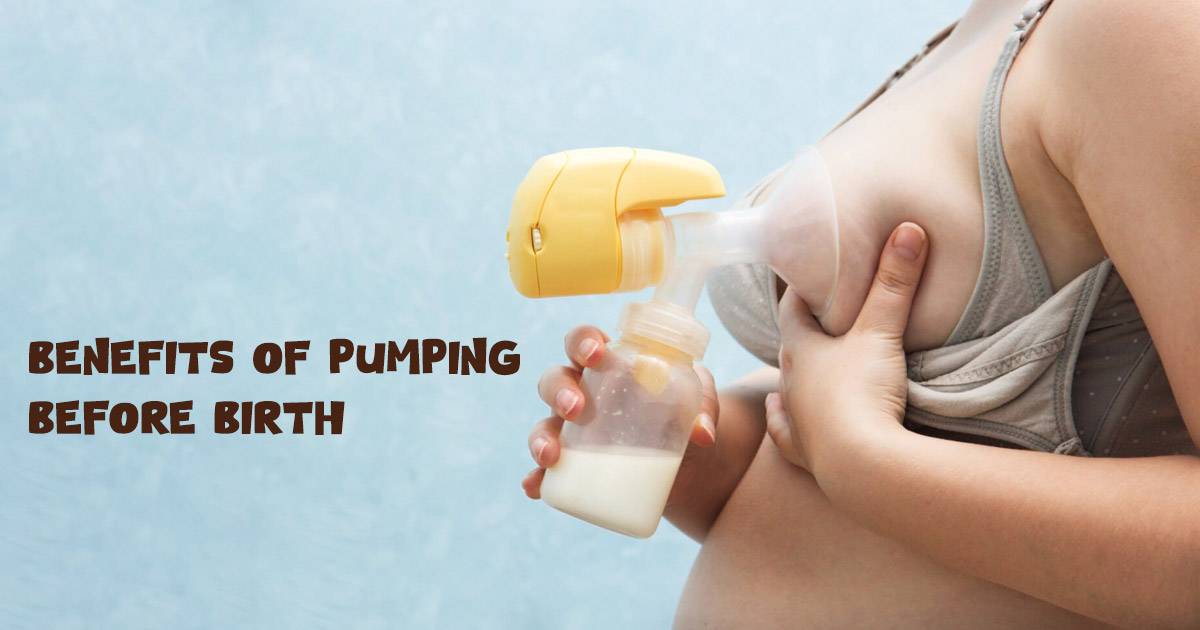Pumping Breast Milk Before Birth: Is It Right for You and When to Start?

Getting ready for a new baby involves a lot of planning. Dads often focus on making sure moms are comfortable and safe during pregnancy. Moms, on the other hand, pay extra attention to their diet to keep both themselves and their growing babies healthy. They avoid certain foods that might not be good for the baby and eat plenty of nutritious ones instead. Studies, like those from the American Pregnancy Association, show how important eating right during pregnancy is for both the mom’s and the baby’s health.
One big question that comes up as the due date gets closer is about feeding the newborn. Will breastfeeding work out, or should formula be considered as a backup? This is where the idea of pre-birth pumping comes in. It’s basically trying to pump breast milk before the baby arrives to see if it’s possible and to maybe start collecting some milk ahead of time.
What is Pre-Birth Pumping?
Pre-birth pumping is when future moms use a special device called a breast pump to collect milk before their baby is born. This might seem like something new because, usually, moms start pumping after the baby has arrived. But for some, starting earlier can be part of getting ready to feed their baby.
How is Pumping Done?
Using a breast pump, either by hand or with an electric one, moms gently encourage their breasts to produce milk. This is typically done closer to the due date since that’s when the body is nearly ready to make milk, especially the first type called colostrum, which is packed with nutrients for the baby.
Why Consider Pre-Birth Pumping?
There are a few reasons moms might want to pump before the baby arrives:
- To Get Milk Flowing: It can help start the milk production process early.
- To Learn: It gives moms a chance to get used to the pump and how it feels to express milk.
- To Be Ready: Knowing there’s already some milk stored can ease worries about feeding the baby right away.
- To Have Backup: If breastfeeding isn’t possible immediately after birth, having colostrum saved up can be very helpful.
How Does It Actually Work?
When moms use the pump, it gently squeezes the nipples, similar to how a baby does when feeding. This action tells the brain to release special hormones that help produce and release milk. By doing this before the baby is here, the body can start making small amounts of colostrum ready for the baby’s first few feeds.
Thinking About Pre-Birth Pumping? Here’s What to Consider
Pre-birth pumping, or collecting milk before your baby arrives, might sound like a good idea, but it’s not without its downsides and important things to think about. Here’s a look at some reasons to be cautious:
- It Could Start Labor Early: A big concern with pumping before the baby is due is that it could lead to early labor. This is because stimulating the nipples can make the body release a hormone that causes contractions.
- Extra Stress: Getting ready for a new baby is already a busy time. Trying to pump milk too can make things more stressful, especially if there’s worry about how much milk you’re making.
- Not a True Measure of Milk Supply: The amount of milk you can pump before your baby is born doesn’t always match how much you’ll have after birth. Thinking it does could cause unnecessary worry.
Before you start pumping milk before your baby arrives, it’s a good idea to talk to your doctor or midwife. They can give you advice that fits your health and how your pregnancy is going. Learning how to use a breast pump properly and knowing what’s normal for milk production can help you know what to expect and avoid getting upset if things don’t go as planned.
Remember, everyone’s different; some people find it easy and useful to pump before the baby comes, while others prefer to wait until after the birth. It’s all about what feels comfortable and right for you.
Deciding Whether to Pump Milk Before Your Baby Comes
Deciding if you should start pumping breast milk before your baby is born is a big decision and it depends on what feels right for you, your health, and after talking it over with your doctor. While getting an early start on pumping can be helpful for some reasons, like getting comfortable with the pump and having some milk ready to go, it’s not without its downsides, like the chance of starting labor before your baby is ready to arrive.
If, after chatting with your healthcare provider, you both think that pre-birth pumping is a good idea for you, the timing of when to start is crucial. Most often, doctors suggest waiting until you’re about 36 to 37 weeks along in your pregnancy. This is because, by then, your body is more ready to start making milk and the risk of accidentally starting labor early is less since you’re close to your due date. But remember, this advice should only come from a professional who knows your health history and how your pregnancy is going.
At the end of the day, the choice to pump milk before your baby arrives comes down to personal preference, health considerations, and professional advice. Making an informed decision involves listening to your own body, understanding the benefits and risks, and keeping your and your baby’s health at the forefront.
